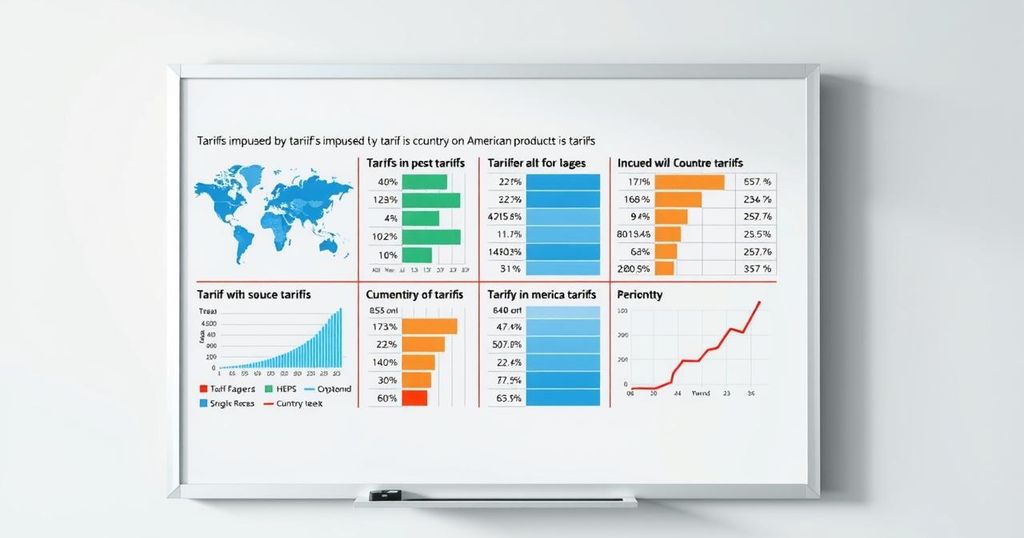World news
AMERICA, ASIA, CANADA, CURRENT_AFFAIRS, DONALD TRUMP, ECONOMICS, EU, EUROPEAN UNION, FOOD INDUSTRY, INDIA, JAPAN, KA, KAROLINE LEAVITT, LEAVITT, MAGA VOICE, MAGAVOICE, NATIONAL SECURITY, NORTH AMERICA, POLITICS, SOCIAL MEDIA, TRUMP, UNION, UNITED STATES, US, WASHINGTON, WHITE HOUSE, WHITE HOUSE PRESS
Lena Nguyen
0 Comments
Trump Administration Announces Reciprocal Tariffs on ‘Liberation Day’
The White House has confirmed that reciprocal tariffs will be implemented with no exemptions as part of Trump’s “Liberation Day” plans on April 2. Spokesperson Karoline Leavitt outlined significant tariffs from foreign nations impacting American products, emphasizing the need for trade equity and pledging a historic change in trade relations.
Amid ongoing speculation about President Donald Trump’s plans for reciprocal tariffs, White House spokesperson Karoline Leavitt announced that there will be no exemptions. She emphasized the need to cease what she termed “unfair trade practices” as the administration prepares for a tariff announcement slated for April 2, deemed “Liberation Day.”
Leavitt described the nature of the proposed tariffs, indicating they would be both country-based and sectoral, firmly stating that President Trump is committed to their implementation. She remarked, “It’s time for reciprocity,” underscoring the administration’s stance on trade equity.
The spokesperson presented a chart showcasing significant tariffs levied on American products by various countries, including a 700% tariff from Japan on rice, a 100% tariff from India on agricultural goods, and a 50% tariff from the European Union on American dairy.
This restrictive tariff landscape, Leavitt asserted, threatens American businesses and jobs by making it exceedingly difficult for U.S. goods to compete in foreign markets. The current administration seeks to implement reciprocal tariffs as a countermeasure to other nations’ higher rates, aimed at leveling the playing field for American exports.
Leavitt, citing a pattern of what she characterized as exploitation, indicated that these tariffs would enact a “historic change” in America’s trading relationships, expressing concern over the implications for American workers.
In support of these claims, the Trump administration also published a comprehensive report detailing perceived foreign trade barriers, coinciding with the announcement of reciprocal tariffs. The report highlights issues like tariff discrepancies, onerous regulations, and various non-tariff barriers that inhibit U.S. exports.
U.S. Trade Representative Jamieson Greer remarked that no modern president has been as cognizant of the detrimental foreign trade barriers faced by American exporters as President Trump. He reaffirmed the administration’s commitment to addressing these barriers to restore fairness in global markets.
In summary, the Trump administration is poised to introduce a series of reciprocal tariffs on April 2, aiming to rectify what they consider unfair trade practices from various nations. Leavitt’s presentation of substantial tariffs imposed by foreign countries on U.S. goods underscores the administration’s commitment to safeguarding American workers and businesses. The recent release of the trade barriers report further supports their approach, highlighting various regulations seen as hindrances to U.S. exports.
Original Source: www.ndtv.com




Post Comment